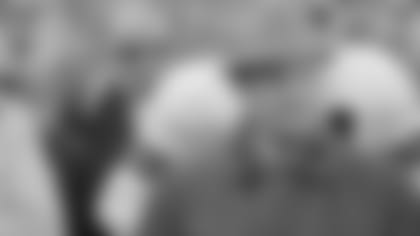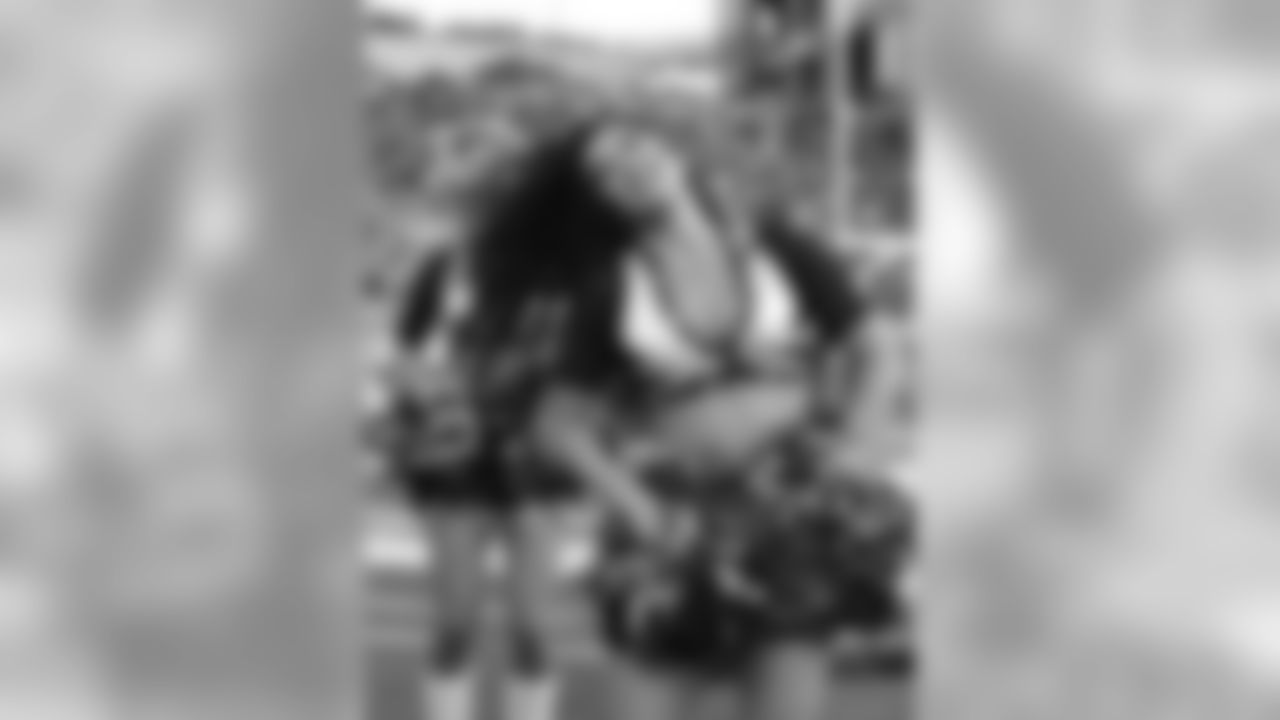Tommy Casanova: in six seasons he went to three Pro Bowls.
Tommy Casanova still purrs with the Bayou and the 1970s at 67 years young, a three-time Pro Bowl safety that gave field vision new meaning when he retired at age 27 on the eve of the Bengals' 1978 training camp to become an eye surgeon.
"Oh yeah," Casanova says this week when asked if he's still operating in his hometown of Crowley. La. "What ya got? We'll cut it off."
Casanova is one of these guys they use to make movies. He's Dennis Quaid in Everybody's All-American, except Casanova has the happy ending. He's Moonlight Graham in Field of Dreams, except he got plenty of at-bats in the bigs before he became a doctor. He's as natural as Robert Redford playing Roy Hobbs in, well, "The Natural." Except his left knee wore out instead of his insides before he went out with five hits (three solo tackles and two assists) in the 1978 Pro Bowl.
"I was really surprised," says Casanova, reflecting on the vote that made him No. 30 on the list of First 50 Bengals. "There were so many great players up there. You don't want to anticipate anything. But I was really surprised and honored to be named one of the top players to play in Cincinnati."
Casanova's honors aren't like everyone else's honors. He has done pro bono work for those afflicted with leprosy, magically turning pain into pride with the turn of a knife.
"I consider it an honor to be able to work with people that need that kind of help," says Casanova, a Republican who 22 years ago overwhelmingly won a Democratic Louisiana state senate seat in an effort to do a similar sort of surgery and keep gambling away from the poor.
That's why Paul Brown once said about him, "Just plain special. We never had anyone else like him. On defense, he played the ball like a center fielder. On punt returns, he was excellent. A very good football player and always a gentleman."
Casanova was a Paul Brown guy and Paul Brown was a Casanova guy. When the old man would say football isn't your life's work, he was talking about guys like Casanova.
"He was my kind of coach," Casanova says. "He would get criticized for it, but he wasn't about getting emotional and fired up. It was a business. You went out and did your job. He was all business. That's the way I was."
Casanova takes his First 50 Bengals bow in the stadium named after Paul Brown this weekend when the Bengals play the Colts Sunday (1 p.m.-Cincinnati's Channel 12) and they could honor his 17 career interceptions with a few of their own.
"I'll run the last five yards into the end zone," Casanova says. "They'll probably throw cans at me."
Not Thomas Henry Casanova III, famously movie-star handsome who married at 37, matching the uniform number he wore for the Bengals after they took him in the second round of the 1972 draft out of LSU.
"You're there for so long, you make so many friends," Casanova says. "Those were great days of my life. I still love Cincinnati and I'll never forget how good the University of Cincinnati was to me. Without them, I couldn't have done it."
LSU told him he had to play football or go to medical school. He couldn't do both. Brown told him he could and so did UC.
"(UC) let me do it in six years when it should have been four," Casanova says. "They were on the quarters system and that helped. (Brown) was behind me. They let me miss a lot of training camp my second year when I got started in med school. They made a lot of concessions. I stayed in pretty good shape all year and once I got there and began playing, after a couple of seasons you know what you're doing and you just go out and do it."

When Tommy Casanova retired, Paul Brown said the Bengals were happy to help produce a doctor.
Casanova had an idea he wanted to follow his father into ophthalmology and an internship at UC in internal medicine assured they would practice together in Crowley.
"People never get well," Casanova says. "They've got diabetes or pulmonary disease or liver disease. You don't cure them. They get better but they're still sick. In ophthalmology, you've got a detachment or a tumor you take off the eye lid. Most people end up seeing better. You can fix it. I had wanted to do something surgical to get rid of the problem.
"You take out an appendix and don't do everything right, you can sew it up and say it's supposed to hurt a little," Casanova says. "Not with an eye. You're supposed to see well. That's what people want. (The eye) can be difficult to work (in). It's delicate, but it's tough. Especially with cataracts and that's what most of us do. I do a lot of plastic surgery. Eye reconstruction. Tumors on the lids and get rid of them."
So there's the ultimate dramatic irony worthy of the leading man. The knee that drove Casanova into medicine before that '78 camp couldn't be fixed. Casanova simply has bad knees. So did his mother. His brother gave up the game early because of them. He's had one knee replaced and is getting ready to have the other one done.
"If I could be playing today I would," Casanova says. "I could have kept playing. I could have got by. But I couldn't play at the level I wanted to play. I didn't think it was fair to me or my teammates and I knew I had something to fall back on. It just wore out."
Casanova's syrupy syllables still conjure up that 1971 Sports Illustrated cover straight out of Baton Rouge. They called him the best player in the country, but even then he knew what it was all about.
"It was a great honor. I didn't believe it. I knew better than that, but as long as other people believed it, that's what they wanted," Casanova says. "It was all to sell magazines."
And damned if he didn't hurt his hamstring in the opener and missed about half the season when he kept trying to come back too soon.
"It was the curse on me," he says. "That's the way it is with Sports Illustrated."
He takes his cornerbacks in that famed Bengals secondary of the '70s a heck of a lot more seriously than that S.I cover. Maybe you are can argue the S.W.A.T team of 1988 and 1989 with David Fulcher as the Pro Bowl strong safety as the Bengals' best secondary ever, but it's hard to beat Casanova at free safety with Lemar Parrish and Ken Riley at corner for six years. Parrish and Casanova went to three Pro Bowls together while Riley racked up the fifth most interceptions of all-time.
"Those guys made it easy for me," Casanova says. "They were unbelievable. Kenny Riley had technique that was perfect and Lemar was just all athletic. He was one of the most wonderful athletes I've ever seen. The guy would be running 100 miles per hour, stop on a dime, and go straight up. He was incredible. Lemar Parrish might be the best player I ever played with. He was really, really good."
Casanova doesn't keep up with many. Defensive tackle Ron Carpenter and his son visit every year to go duck hunting. He occasionally hunts ducks with Shreveport's Bo Harris. Last year he attended Ken Anderson's foundation fundraiser and saw a lot of the guys. He savors every minute. He can only imagine what little time he would have had if he stayed in politics after he won that senate seat in 1995 with an astounding 57 percent of the vote.

The first group of Bengals Legends that gathered for this year's opener.
"That's back when I lost my mind and got into politics," Casanova says. "It was so frustrating. You can't get anything done because everyone has an agenda. But it's like that everywhere. Washington. Columbus. Not just Louisiana. I don't think they really care about the states. It was very frustrating and very rewarding. We got some good things done, but there's so many things that could be done better. But you can't get these guys to go along with you. They've got the agenda. And it's stupid stuff. I don't even want to think about it."
A week into his four-year term his wife Jeanne was diagnosed with Parkinson's and he told her he'd resign. But she told him to serve out the four years and see how they were doing. Jeanne is a lot stronger than partisan politics. Casanova didn't run when the term was over, a Democrat won again, and she is at his side adamantly urging he go to Cincinnati this weekend as she stays home to recover from some issues.
"That was before gambling was allowed in Louisiana," Casanova says. "Now we have casinos. I just know people everywhere, not just in Louisiana, always have that feeling that when they go into a casino, they're going to beat the odds. They're going to win. The poorly educated feel that way more than the well-educated and as a result they take the money they get from Medicaid, food stamps, this and that, and they bet it and they lose money. To me, it's thievery. It's taking advantage of the poorest of the poor. It just drove me absolutely nuts."
But there is no partisanship when it comes to the Bengals all-time banners. No. 37 is the all-time free safety. It makes for a good ending for a leading man. Jeanne knows best. He'd miss it.
"I can't wait. She told me, please go up there," Casanova says, "because she doesn't want to have to listen to me for the rest of the week. So I'll run up there and see those guys."
Bengals.com features cheerleader of the week , Kristen.





















